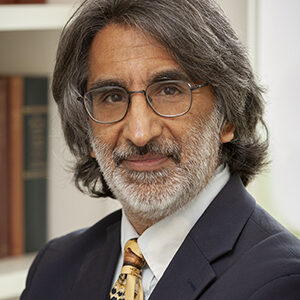Virtue & Power
Reflect on the ethical dilemmas implied by the pursuit of power.
June 23–27, 2025
Washington, DC
In the second week of Political Studies, fellows will consider the proper education of the ambitious soul.
Our first seminar will explore Xenophon’s Education of Cyrus, among the greatest books on leadership ever written, but woefully understudied and deeply misunderstood. The book is fictional—a historical novel of sorts—yet philosophic in the depth and complexity of its treatment of politics and ambition. It is a profound portrait of the life of grand politics that features adventure, intrigue, betrayal, conquest, love, justice, beauty, freedom, tyranny, and death. No less an authority than Niccolò Machiavelli suggests that aspiring princes should exercise their minds by reading Xenophon and striving to imitate “the life of Cyrus.”
Our second seminar will focus on The Tempest, the story of how the Dukedom of Milan was lost and regained. Prospero’s study of the liberal arts contributes to his fall from power, but it also helps him preside over the small society of strange creatures on the remote island where the action of the play takes place. Through close study of one of Shakespeare’s greatest plays, students will meditate on the kind of education we need to engage well in political life.
Shilo Brooks on making great statesmen
This course is part of our residential Political Studies Program. Fellows participate in morning seminars and meet prominent men and women in public life over afternoon and evening sessions. Up to 32 fellows will be selected.

Shilo Brooks is Executive Director of the James Madison Program in American Ideals and Institutions and Lecturer in the Department of Politics. He is author of Nietzsche’s Culture War, in addition to scholarly and journalistic articles on a variety of topics in politics and the humanities. His teaching and research interests lie in the history of political philosophy, politics and literature, and statesmanship.

Shilo Brooks is Executive Director of the James Madison Program in American Ideals and Institutions and Lecturer in the Department of Politics. He is author of Nietzsche’s Culture War, in addition to scholarly and journalistic articles on a variety of topics in politics and the humanities. His teaching and research interests lie in the history of political philosophy, politics and literature, and statesmanship.
He was previously Associate Faculty Director of the Benson Center for the Study of Western Civilization and Faculty Director of the Engineering Leadership Program at the University of Colorado. Brooks has also held appointments as Visiting Professor of Government at Bowdoin College, Fellow in the Program on Constitutionalism and Democracy at the University of Virginia, and Fellow in the James Madison Program at Princeton. He received his Ph.D. in political science from Boston College and his B.A. in liberal arts from the Great Books Program at St. John’s College, Annapolis. He is an alum of the Political Studies Program.

Jenna Silber Storey is a senior fellow in the Social, Cultural, and Constitutional Studies department at the American Enterprise Institute (AEI), and co-director of AEI’s Center for the Future of the American University. She is concurrently an SNF Agora Fellow at Johns Hopkins University, and a research fellow at the Civitas Institute at the University of Texas at Austin. She also serves on the executive committee of the Alliance for Civics in the Academy.

Jenna Silber Storey is a senior fellow in the Social, Cultural, and Constitutional Studies department at the American Enterprise Institute (AEI), and co-director of AEI’s Center for the Future of the American University. She is concurrently an SNF Agora Fellow at Johns Hopkins University, and a research fellow at the Civitas Institute at the University of Texas at Austin. She also serves on the executive committee of the Alliance for Civics in the Academy.
Dr. Storey’s work concentrates on liberal education, civic thought, and the relationship between the university and society. She has developed a series of initiatives in partnership with Johns Hopkins University to provide pathways for collaboration between JHU faculty and AEI scholars, to support ideologically heterodox students who aspire to careers in academia, and to host discussions to explore the emerging academic field of civic thought and practice.
Previously, Dr. Storey was assistant professor in politics and international affairs and the executive director of the Tocqueville Program at Furman University. In addition to Furman University, she has taught at the University of Chicago; the Buckley Program at Yale University; the Hertog Summer Studies Program in Washington, DC; and the Tikvah Fund in Princeton, New Jersey. Earlier she worked as executive assistant to the superintendent for the Boston University–Chelsea Schools partnership. She served as a board member of Veritas Preparatory School in Greenville, South Carolina, from 2019 to 2021, and now serves as a board member of the St. Jerome Institute in Washington, DC, the Center for Constitutional Liberty at Benedictine College, and the Honors College at Tulsa University.
Dr. Storey is the coauthor, with her husband, Benjamin Storey, of Why We Are Restless: On the Modern Quest for Contentment (Princeton University Press, 2021). Together, the Storeys are working on a book titled The Art of Choosing: How Liberal Education Should Prepare You for Life.
Dr. Storey’s work has been published in media outlets such as the New York Times, the Wall Street Journal, the Washington Post, National Affairs, Humanities, the Boston Globe, National Review, the Chronicle of Higher Education, Inside Higher Ed, American Purpose, Society, the New Atlantis, City Journal, the Claremont Review of Books, and First Things. She has lectured at institutions such as Oxford University, West Point, the City College of New York, American University, the University of Notre Dame, the Institute for Classical Education, and the American Council of Trustees and Alumni. She has also delivered papers at the American Political Science Association conference and other disciplinary conferences.
Dr. Storey has a PhD from the University of Chicago’s Committee on Social Thought and a BA from the University Professors Program at Boston University. She spent time in Germany as a visiting student at the University of Tübingen and as an exchange student at Dresden University.
Readings:
Discussion Questions:
Readings:
Discussion Questions:
Readings:
Discussion Questions:
Readings:
Discussion Questions:
Readings:
Discussion Questions:
Readings:
Readings:
Readings:
Readings:
Readings:

Kevin Kambo
Kevin Kambo is an assistant professor of philosophy at The University of Dallas. He specializes in ancient Greek philosophy, particularly Platonic psychology. He also has scholarly interest in philosophy of technology, liberal education, and philosophy and literature.

Benjamin Storey
Benjamin Storey is a senior fellow in Social, Cultural, and Constitutional Studies at the American Enterprise Institute (AEI), and co-director of AEI’s Center for the Future of the American University. He is concurrently an SNF Agora Fellow at Johns Hopkins University and a research fellow at the Civitas Institute at the University of Texas at Austin.

Gen. Kenneth F. McKenzie Jr.
Gen. Kenneth ‘Frank’ McKenzie Jr. is the former Commander of United States Central Command. He led a distinguished 42-year military career, commanding at multiple levels within the Marine Corps and serving on the Joint Staff. His leadership roles included commanding the First Battalion, Sixth Marines, and the 22nd MEU (SOC) during combat deployments to Afghanistan and Iraq.

Aaron MacLean
Aaron MacLean is a senior fellow at Hudson Institute and the host of the School of War podcast. Previously, he was senior foreign policy advisor and legislative director to Senator Tom Cotton of Arkansas. Aaron served on active duty as a U.S. Marine for seven years, deploying to Afghanistan as an infantry officer in 2009–2010.

Mike Gallagher
Mike Gallagher served for four terms in the U.S. House of Representatives as Wisconsin’s 8th Congressional District representative. Previously, he served seven years on active duty in the U.S. Marine Corps, including two deployments to Iraq.

Hugh Liebert

Ryan P. Hanley
Ryan Patrick Hanley is Professor of Political Science at Boston College. His research in the history of political philosophy focuses on the Enlightenment. He is the author of Our Great Purpose: Adam Smith on Living a Better Life and Love’s Enlightenment: Rethinking Charity in Modernity.

Akhil Reed Amar
Akhil Reed Amar is Sterling Professor of Law and Political Science at Yale University, where he teaches constitutional law in both Yale College and Yale Law School. He is Yale’s only currently active professor to have won the University’s unofficial triple crown — the Sterling Chair for scholarship, the DeVane Medal for teaching, and the Lamar Award for alumni service. He hosts a weekly podcast, Amarica’s Constitution.

Adam J. White
Adam J. White is the Laurence H. Silberman Chair in Constitutional Governance and senior fellow at the American Enterprise Institute, where he focuses on the Supreme Court and the administrative state. Concurrently, he codirects the Antonin Scalia Law School’s C. Boyden Gray Center for the Study of the Administrative State.